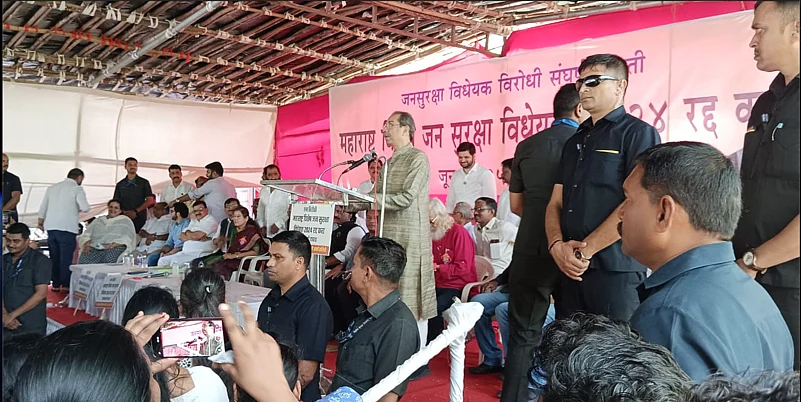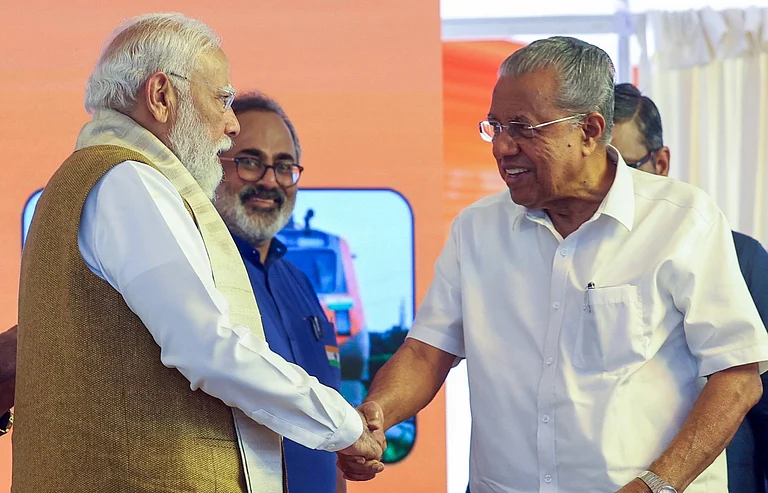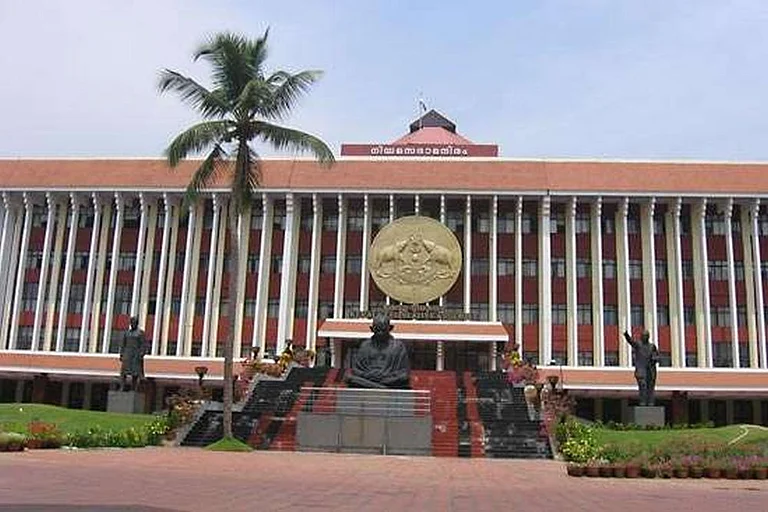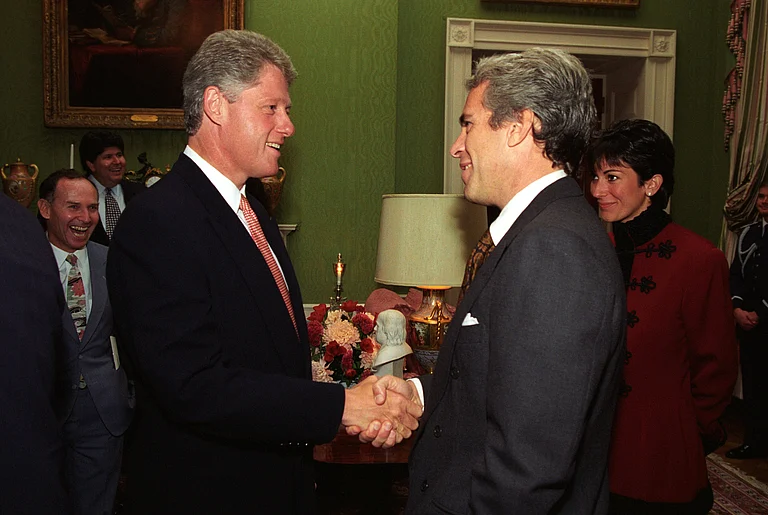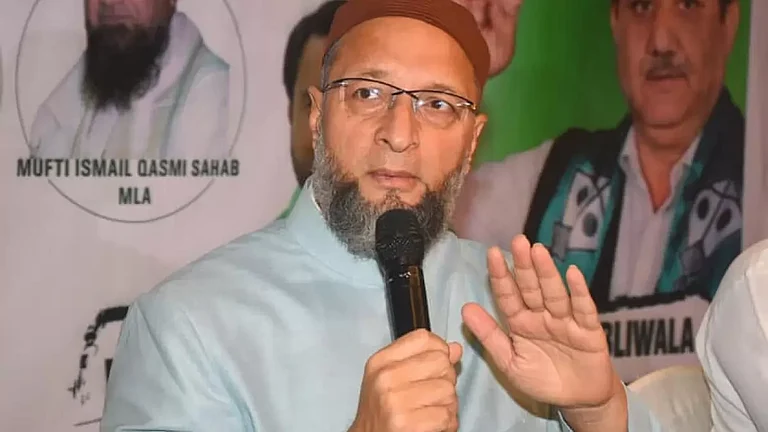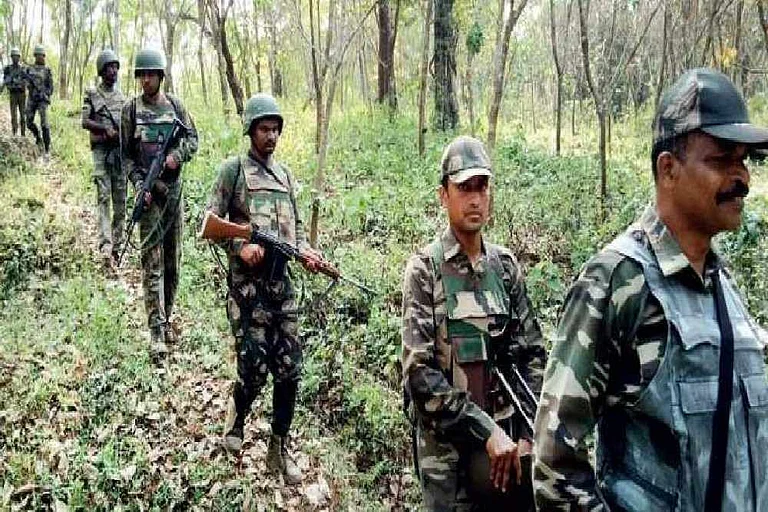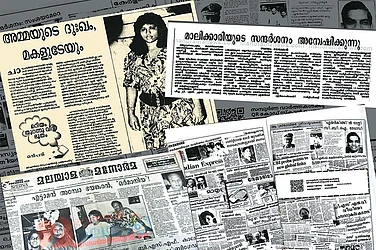On June 30, 2025, thousands gathered in Mumbai’s Azad Maidan in protest against a new law that, many say, threatens fundamental rights in the name of national security. When Shiv Sena (UBT) leader Uddhav Thackeray addressed the crowd, speaking on how the Maharashtra Special Public Security Bill (MSPS) "has provisions for stringent action to suppress dissident voices," the gathered roared in agreement.
"For the BJP, individuals they label as corrupt or connected to anti-national elements suddenly turn patriotic once they join the BJP. However, if someone criticises the BJP, they label that person as anti-national and an urban Naxal," he said.
Since its announcement in the last Monsoon session, the bill has been criticised by political leaders, civil rights organisations, and legal experts alike.
“The bill, with its broad and vague provisions, raises concerns about unnecessary overreach, as these issues are already adequately addressed by the UAPA and BNS. The creation of an additional law, especially one that appears to expand on the provisions of sedition and terrorism, seems to undermine the spirit of constitutionalism by further eroding fundamental freedoms and judicial safeguards against arbitrary state action,” says Teesta Setalvad, secretary of Citizens for Justice and Peace (CJP).
Why The MSPS Bill, and Why Now?
According to the Maharashtra government, the bill is intended to combat the growing urban footprint of Naxalism. The bill states that “the menace of naxalism is not only limited to remote areas of the naxal affected States but its presence is increasing in the urban areas also through the naxal frontal organisations,” which “give constant and effective support in terms of logistics and safe refuge to their armed cadres.”
In the bill, the government cites seized Maoist documents as evidence that “safe houses” and “urban dens” of the Maoist network exist in Maharashtran cities. These activities, the bill claims, are “creating unrest among common masses to propagate their ideology of armed rebellion against the constitutional mandate” and threaten to “disrupt public order in the State.”
The government says it is following the example of states like Andhra Pradesh, Telangana, Odisha, and Chhattisgarh, which have enacted similar public security laws.
However, activists fear that the law gives police extrajudicial powers. “These laws grant the state and its police apparatus extraordinary and significant powers to act against individuals engaging in acts that threaten national security, integrity, or sovereignty. With the Maharashtra Control of Organised Crime Act (MCOCA) already in place, the incorporation of such stringent provisions into Maharashtra's criminal laws, especially without the necessary safeguards, raises serious concerns about the potential for misuse,” says Setalvad.
What Does The MSPS Bill Actually Say?
The MSPS Bill defines "unlawful activities" to include not just violence but also speech, expression, signs, or writings that may create fear, disrupt public order, or promote disobedience against state institutions. Once the state government identifies an organisation as unlawful, it can issue a notification in the Official Gazette. This allows authorities to seize property, freeze bank accounts, evict individuals from offices or residences, and restrict access to organisational resources.
“The bill lets the government brand any set of individuals, registered or not, as an ‘unlawful organisation’ and take a broad-brush approach without fine-tuning,” said Sanjay Hegde, a senior advocate specialising in civil rights cases. He criticised the Maharashtra Special Public Security Bill, 2024, for being “overbroad”.
“For instance, if people celebrate a cricket team’s win and a scuffle breaks out, could that be called a danger to public order? Criminal laws, especially those impacting fundamental rights, must be fair, just, and precise, not void for vagueness,” Hegde pointed out.
Offences under the bill are cognizable and non-bailable. Penalties include up to three years in prison and a fine of three lakh for support or membership, and up to seven years and five lakh for planning or executing unlawful activities. Investigations must be carried out by police officers of Sub-Inspector rank or higher, with approval from a Deputy Inspector General (DIG) required to file a case.
Why Are Civil Rights Groups Worried?
Civil rights groups like Public Union for Civil Liberties (PUCL) and CJP argue that the bill’s vague language could criminalise peaceful protest, journalism, or student activism.
Setalvad points out that which section of the law gets used often depends on what the state, including the police, wants to criminalise at that moment. She recalls how farmers, “those who grow our food,” have been slurred, abused, and faced criminal cases; protesting workers have been charged under draconian laws; and Adivasis fighting for land rights have been criminalised. Young Muslim student leaders and protesters, she says, were jailed simply for exercising their democratic rights under Article 19 during the anti-CAA protests, which were a coordinated act of state repression. Even activists, authors, and independent YouTubers, she highlights, are now seen as threats under a majoritarian regime.
According to The Times of India, the Joint Select Committee of the Maharashtra Legislature has approved a revised version of the Maharashtra Special Public Security Bill, 2024. The revised draft removes references to ‘urban Naxals’ and instead concentrates on left-wing extremist organisations.
Whilst talking about the revised bill’s focus on “leftist extremism” Setalvad says, “The bill has no word of censure for “violent far-right extremism, vigilantism” that reinforces the real critique and concern that the law is designed to monitor, control, and neutralise farmers, workers, citizens, student movements, political education, the political opposition and grassroots activism and any kind of political dissent. The state’s role in this draft law is redefined not as a guarantor of rights, but as a censor of ideas, something that confirms that we are heading, even more, towards authoritarianism.”
Hegde, also commenting on the mention of left-wing extremism, said, “If it only targets left-wing groups and not the right, it opens the door to misuse. At some point, a defence lawyer will argue that Naxalites are just running a trade association. That’s what happens when your definitions are this vague; they stop meaning anything.”
Uddhav Thackeray, during the 30th June protest, had also referenced past misuse of similar laws, recalling how in 2017–18, protesting farmers were labelled as Naxalites despite their peaceful protests. For him and others, that episode depicts how state power can be used to suppress honest social movements under the guise of national security.
What Changes Were Made to the Bill?
The original draft of the bill, introduced in July 2024, drew over 12,300 written objections from citizens and organisations. Among them was Citizens for Justice and Peace (CJP), led by Teesta Setalvad, which submitted detailed critiques warning that the bill threatens constitutional rights and opens the door to political repression.
Teesta Setalvad said, “The bill, and the way the Committee handled it, clearly shows that the current BJP-led government wants to crack down on basic constitutional freedoms, including equality, free speech, the right to protest, and personal liberty under Articles 14, 15, 19, and 21.
“The bill treats opposition as extremism, mobilisation as subversion, and dissent as treason,” she added, while calling the Committee process a “shocking and subversive” failure.
“Despite having five sittings and members from the Opposition, the committee ignored objections from the Maha Vikas Aghadi and over 12,750 public submissions, including those from the CJP,” she said.
“There were no public hearings anywhere in Maharashtra. The Committee didn’t do its job of protecting the Constitution. Instead, it gave a free pass to a dangerous law with just a few technical changes,” she added.
In response to mounting pressure, the government referred the bill to a Joint Select Committee in December 2024. The 26-member committee submitted a revised version just ahead of the monsoon session of the Maharashtra Legislature, which is scheduled from June 30 to July 18, 2025.
According to the Citizens for Justice and Peace (CJP), the revised draft of the Maharashtra Special Public Security Bill includes three key procedural changes. First, only organisations, and not individuals, can now be declared unlawful under the Act. Second, any such declaration must be approved by an Advisory Board, which is reported to include a retired High Court judge, a district judge, and a public prosecutor or government pleader. Third, investigations into alleged offences under the Act must be conducted by officers of the rank of Assistant Commissioner of Police (ACP) or Deputy Superintendent of Police (DySP) and above.
Hegde expressed scepticism about the Advisory Board’s independence. “It can be filled with people like prosecutors who share the government’s mindset and will likely rubber-stamp executive actions,” he said, adding that, “Without real safeguards, these boards offer no protection.”
Broader Implications
Hegde also warns of the bill’s potential for abuse. “Give police such vague, sweeping powers, and they’ll target the usual suspects, the poor, minorities, protesters, or anyone challenging those in power,” he said.
The bill is currently being debated alongside 13 other proposals in the legislature. Opposition parties, including NCP (SP), Congress, and Shiv Sena (UBT), have raised serious concerns over the revised draft, calling for public hearings, clearer definitions, and stronger safeguards to prevent misuse.
How the bill evolves in the coming weeks will be a test not only for Maharashtra's democratic institutions but also for broader questions about the balance between security and civil liberties in India. For now, the future of protest, activism, and dissent in the state hangs in the balance.







